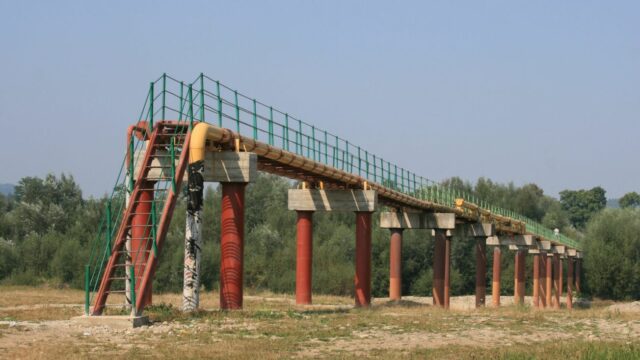**Potential Energy Crisis Ahead for Hungary: An In-Depth Look**
As Hungary navigates through a challenging energy landscape, recent developments have triggered concerns over potential shortages of fuel and electricity. The suspension of Russian oil transit by Lukoil through Ukraine via the Druzhba pipeline poses significant risks for Hungarian residents, as expert Ilona Gizinska from the Centre for Eastern Studies pointed out in her recent interview with POLITICO.
### The Warning Signs: A Disturbing Forecast
Gizinska highlights that Ukrainian measures could create a «difficult situation» for Hungary. Without a solid resolution to the issue, residents may soon see skyrocketing energy prices. This situation resonates with many who remember the energy crises of the past, where households felt the brunt of escalating costs. For instance, in previous shortages, families had to make tough decisions—whether to heat their homes in winter or to cut back on other essential expenses.
### Implications of Supply Disruptions
The situation is further complicated by insights from renowned oil analyst Viktor Katona at Kpler. He emphasizes that a prolonged halt in oil supplies could lead to the depletion of reserves at local refineries. Imagine walking into a gas station only to find the pumps running dry—this scenario could become all too familiar if Hungary does not act swiftly to mitigate the crisis.
#### Strategic Diplomatic Responses
In the face of these challenges, Hungary may need to increase its oil imports through alternative routes, such as the Croatian Adria pipeline. Alternatively, the country could resort to its strategic reserves, which are designed to last for approximately 90 days. This reserve system could be a lifeline, albeit a temporary one, as Gizinska noted. It’s similar to a household stockpiling food during a storm—preparation can make all the difference when resources become scarce.
### Tensions and Responses
The blockade imposed by Ukraine on Russian oil exports to Hungary has sparked controversy. Hungarian Foreign Minister Peter Szijjarto condemned Kyiv’s actions as «unlawful,» claiming they could jeopardize Hungary’s energy security. This political tension could exacerbate the energy dilemma, as countries weigh their political allegiances against the immediate needs of their citizens.
### The Broader Impact: Regional Reactions
Hungary is not the only nation facing challenges due to the disruptions in the Druzhba pipeline. Neighboring countries are also feeling the ripple effects, which could lead to regional instability. According to a report by the International Energy Agency, energy crises tend to have a domino effect; rising prices in one country can spur protests or policy changes in others.
**In Conclusion: Preparing for Uncertainty**
As Hungary stands on the brink of potential energy shortages, it is crucial for both the government and citizens to prepare. Engaging in proactive measures and fostering diplomatic relations could help pave the way for solutions. Communities can also take small steps—like reducing energy consumption or exploring alternative energy sources—to mitigate the impact of potential shortages.
In these uncertain times, staying informed and adaptable is the key to weathering the storm. The lessons learned from past energy crises remind us that while the future may be unpredictable, strategic foresight and community resilience can guide us through these turbulent waters. Let’s hope Hungary finds the pathways to energy security while maintaining a balance in diplomatic relations.






